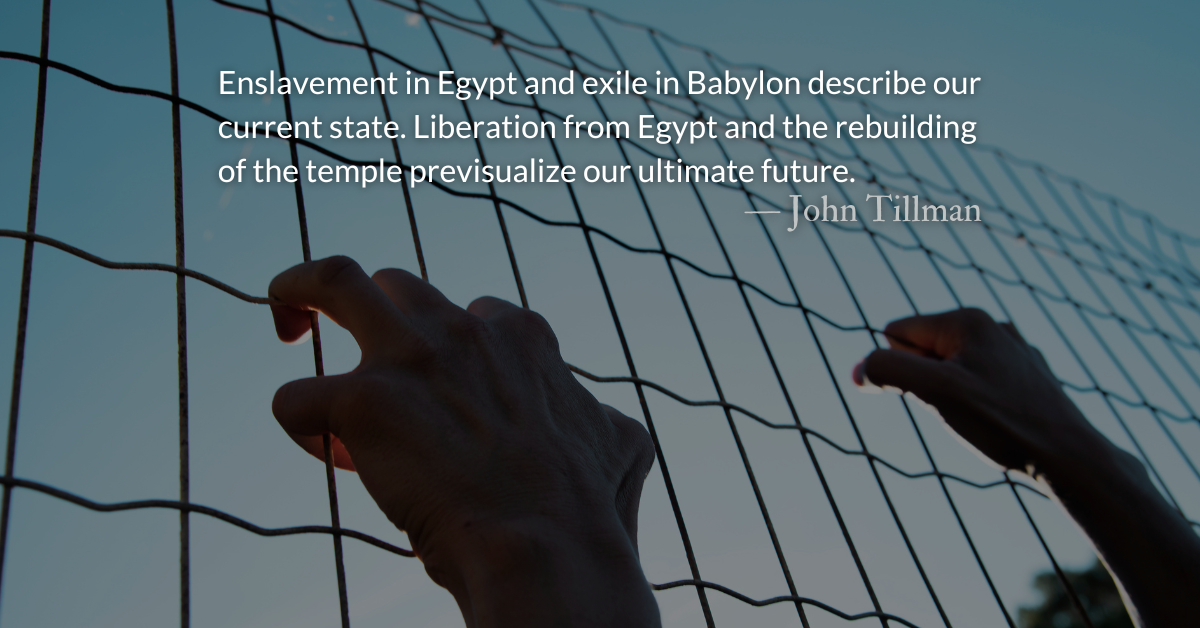Scripture Focus: Isaiah 27.2-6, 13
2 In that day—
“Sing about a fruitful vineyard:
3 I, the Lord, watch over it;
I water it continually.
I guard it day and night
so that no one may harm it.
4 I am not angry.
If only there were briers and thorns confronting me!
I would march against them in battle;
I would set them all on fire.
5 Or else let them come to me for refuge;
let them make peace with me,
yes, let them make peace with me.”
6 In days to come Jacob will take root,
Israel will bud and blossom
and fill all the world with fruit.
13 And in that day a great trumpet will sound. Those who were perishing in Assyria and those who were exiled in Egypt will come and worship the Lord on the holy mountain in Jerusalem.
Reflection: Previsualizations of Promises
By John Tillman
In many of Isaiah’s writings three things are being described at the same time—the destruction of Israel in the immediate future, the return from exile in the near future, and the ultimate fulfillment of Israel in the far future.
When we remove things from this context we can misinterpret them. For example, the often-quoted promise that God will “keep in perfect peace” those who trust in God, (Isaiah 26.3) may have been misread by Isaiah’s audience. They could easily have interpreted it as an assurance of earthly political peace and the absence of suffering or conflict. We might do the same.
Of course, we can and should pray this verse and long for peace. However, any earthly peace we create or experience now is representative, not ultimate. This doesn’t mean earthly peace is pointless. Peace we create now points to the peace to come.
God gives his people previsualizations of ultimate reality. These are intermediary places or persons or events that stand as a picture of the promises of God.
The Tabernacle and the Temple of Jerusalem previsualize Heaven and the City of God, where people can approach God, see his glory, and understand his holiness.
Joseph, Moses, and David previsualize a suffering servant, a liberating savior, and a reigning king that are fulfilled in Jesus.
Enslavement in Egypt and exile in Babylon describe our current state. Liberation from Egypt and the rebuilding of the temple previsualize our ultimate future. We live now as exiles and foreigners in a world enslaved and ruled by sin, but one day we will be ultimately freed and the world we are meant to live in will be rebuilt. This will be the ultimate fulfillment of all God’s promises, including Isaiah 26:3.
Isaiah 25-27 describes the coming of God’s heavenly city to Earth, similar to John’s account in Revelation. (Isaiah 25.6-8; Revelation 21.1-7) This banquet is for all the peoples of the world and every face will be covered in tears, yet God himself will wipe those tears away.
We can take refuge in him and make peace with him. As we do, he will wipe every tear from our eyes and we will bear the fruit that we were always intended to bear. (Isaiah 27.5-6) This promise we may know and fulfill now in part, but then, we will know fully and be fully known. (1 Corinthians 13.12)
Divine Hours Prayer: The Refrain for the Morning Lessons
Our days are like the grass; we flourish like a flower of the field;
When the wind goes over it, it is gone, and its place shall know it no more. — Psalm 103.15-16
Today’s Readings
Isaiah 27 (Listen -2:16)
Luke 9 (Listen -8:05)
Read more about Fruitful in Suffering
Joseph shows us a preview of Jesus, the suffering servant, upon whom the Holy Spirit would rest and be given without limit.
Read more about Public, Prayerful, Persistent Protest
Daniel’s protest softened the heart of a king and changed the leadership of an entire nation. What might ours change today?






